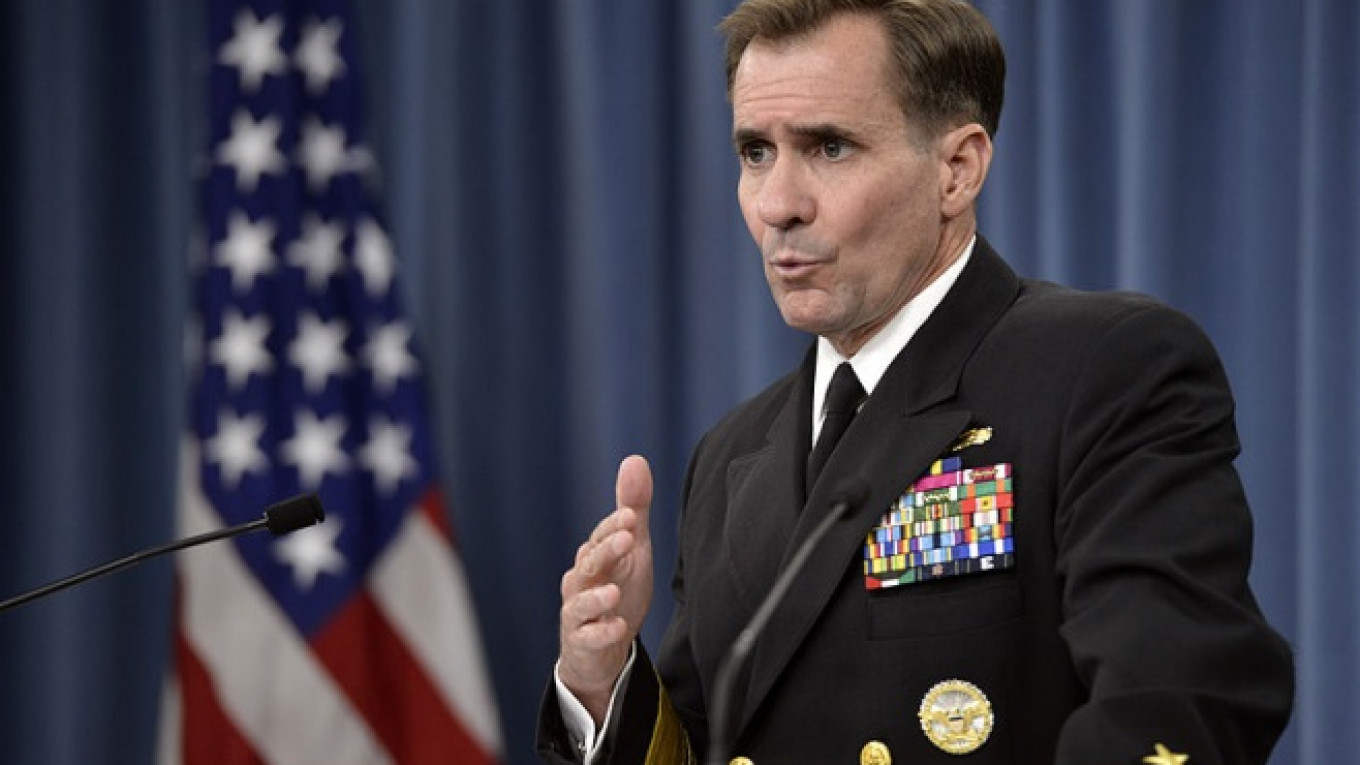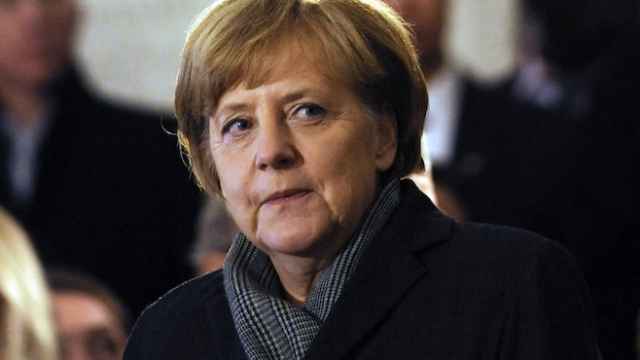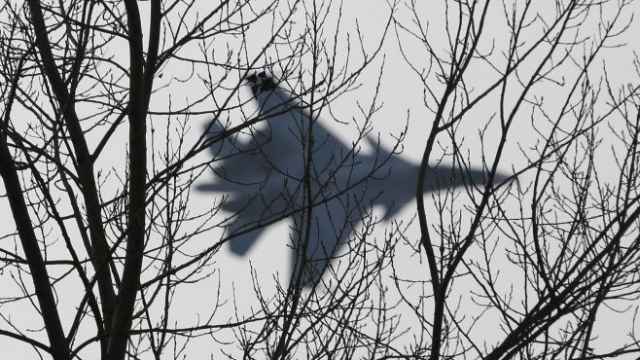Stepped-up flights by Russian fighters, long-range bombers and tanker aircraft are aggravating security concerns in Europe and the United States is watching them very closely, the Pentagon said Friday.
Rear Admiral John Kirby, the Pentagon press secretary, said Russian military planes carried out more flights on Friday over the Baltics, North Sea and Atlantic Ocean, part of what NATO has said is an unusual burst of air activity by Moscow.
"We certainly don't see these increased flights and activity as helpful to the security situation in Europe," Kirby said. "What we'd ask authorities in Russia to do is to take steps, concrete tangible steps, to reduce tension, not increase it."
The "sheer number and size and scope" of the flights also could pose a potential risk to civil aviation, he told a Pentagon press briefing.
The escalation of flights follows months of tension over Ukraine and Kirby also urged Moscow to "do the right thing and meet its international obligations to respect the territorial integrity of its neighbors."
NATO said in a statement its jets had intercepted four groups of Russian aircraft on maneuvers on Tuesday and Wednesday. "These sizeable Russian flights represent an unusual level of air activity over European airspace," it said.
A spokesman stressed there had been no violation of NATO airspace — as there was last week when a Russian spy plane briefly crossed Estonia's border. But such high numbers of sorties in one day were, he said, rare in recent years.
NATO said it had conducted more than 100 such intercepts of Russian aircraft this year, about three times as many as in 2013.
President Vladimir Putin has committed to reinvigorating Russia's armed forces, which were undermined by the economic troubles that followed the collapse of the Soviet Union.
A Message from The Moscow Times:
Dear readers,
We are facing unprecedented challenges. Russia's Prosecutor General's Office has designated The Moscow Times as an "undesirable" organization, criminalizing our work and putting our staff at risk of prosecution. This follows our earlier unjust labeling as a "foreign agent."
These actions are direct attempts to silence independent journalism in Russia. The authorities claim our work "discredits the decisions of the Russian leadership." We see things differently: we strive to provide accurate, unbiased reporting on Russia.
We, the journalists of The Moscow Times, refuse to be silenced. But to continue our work, we need your help.
Your support, no matter how small, makes a world of difference. If you can, please support us monthly starting from just $2. It's quick to set up, and every contribution makes a significant impact.
By supporting The Moscow Times, you're defending open, independent journalism in the face of repression. Thank you for standing with us.
Remind me later.






